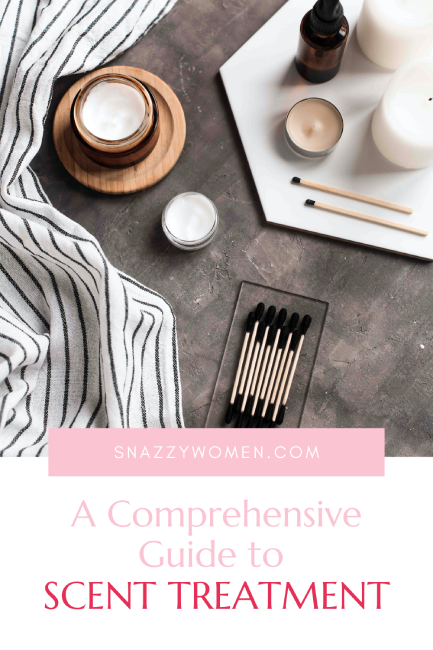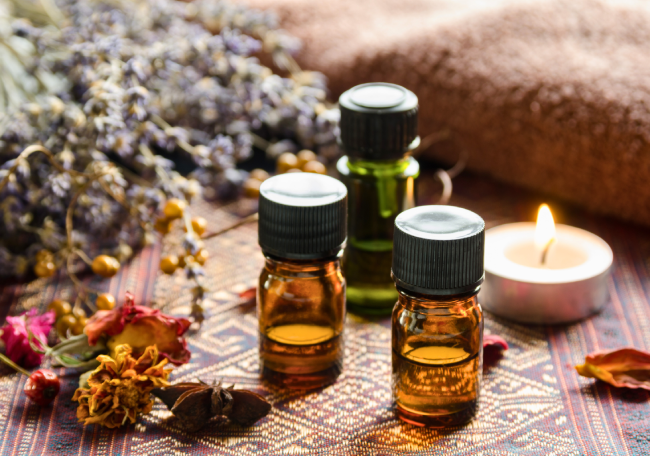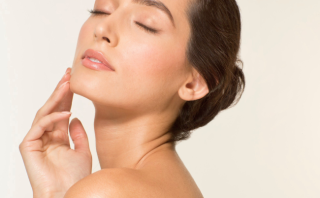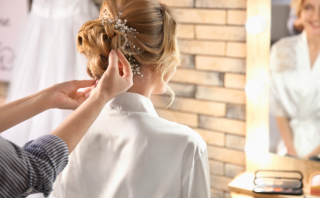Aromatherapy is an ancient practice for centuries to promote physical, emotional, and spiritual well-being. This alternative medicine involves using natural plant extracts, known as essential oils, to enhance one’s health and mood. Aromatherapy offers many benefits, from relieving stress and anxiety to boosting immunity and improving sleep. Here, we will explain the world of scent treatment and explore its history, methods, and benefits. So sit back, relax, and let the soothing scents lead to better health and wellness.
What is Aromatherapy?
Aromatherapy is also referred to as essential oil therapy. It is a holistic practice that uses natural plant extracts to enhance health and overall well-being. It leverages the unique compounds found in essential oils to improve the mind, body, and spirit. This therapeutic approach can be applied through inhalation, topical application, or diffusion, offering a non-invasive option for those looking to boost their overall health. Aromatherapy taps into the powerful connection between scent and the brain to trigger positive effects, including stress relief, mood improvement, and enhanced cognitive function. It is a versatile tool in complementary and alternative medicine.
The Science Behind Scent and Emotion
The profound connection between scent and emotion is rooted in the brain’s anatomy. When we inhale an aroma, receptors in the nose send signals directly to the limbic system, the part of the brain responsible for emotions and memories. This unique pathway explains why a particular scent can instantly evoke a vivid memory or alter our mood. Studies have shown that essential oils, rich in aromatic compounds, can significantly impact our psychological well-being.

Take, for example, lavender. Lavender is known to have calming effects, while citrus oils are often associated with uplifting moods. By harnessing the power of these olfactory signals, aromatherapy capitalizes on the natural synergy between our sense of smell and emotional health.
Types of Essential Oils and Their Benefits
Essential oils are categorized by their unique properties and benefits, from promoting relaxation to invigorating the senses. Lavender oil, known to be calming, can assist in reducing stress and improving sleep quality. Peppermint oil offers a refreshing aroma that can enhance focus and alleviate headaches. Eucalyptus oil is celebrated for its respiratory benefits, making it ideal for clearing congested airways. With its antimicrobial properties, tea tree oil is excellent for skin health and can help treat acne. Lemon oil, another popular choice, is often used for its uplifting and detoxifying effects. Each oil serves a distinct purpose, contributing to the holistic approach of aromatherapy in nurturing the body and mind.
How to Use Aromatherapy Safely and Effectively
To ensure safe and effective aromatherapy, following a few guidelines is crucial. Start by choosing high-quality, pure essential oils from reputable sources. If you’re new to using oils, consider conducting a patch test to watch for any negative reactions. When diffusing oils or learning how to use wax melts, ensure proper ventilation to avoid overpowering scents. It’s also important to dilute your oils with a carrier oil before topical application to avoid skin irritation. Schedule a consultation with a healthcare professional before incorporating aromatherapy into your wellness routine, specifically if you have underlying health conditions or are pregnant.
DIY Aromatherapy Projects for Beginners
Embarking on DIY aromatherapy projects is a delightful and empowering way to bring the benefits of essential oils into your daily life. A simple project to start with is creating your diffuser blends. Apply a few drops of your favoured essential oils with water in a diffuser to create a personalized ambience in your home or office. Another beginner-friendly project is making a homemade pillow spray. Combine lavender oil with water and a hint of witch hazel in a spray bottle to apply to your bedding for a restful night’s sleep. These projects are easy and introduce you to the art of blending oils for maximum benefit.
Aromatherapy in Professional Practice
In professional practice, certified aromatherapists utilize aromatherapy with a deep understanding of essential oil properties, blending techniques, and application methods to address individual needs. These professionals work in various settings, including wellness centres, spas, and private practices, offering personalized sessions. They assess a client’s health history, emotional and physical state, and wellness goals to create a tailored aroma therapeutic experience. Safety and ethical guidelines are strictly followed to ensure a beneficial and secure environment for clients seeking holistic health solutions through scent.
Aromatherapy offers a unique and natural pathway to wellness, intertwining the senses with the mind and body’s intrinsic need for balance and healing. As we’ve explored, the judicious use of essential oils can support various aspects of health, from easing stress to enhancing focus. Whether through professional guidance or DIY projects, the journey into aromatherapy promises a rewarding exploration of nature’s profound impact on our lives.





